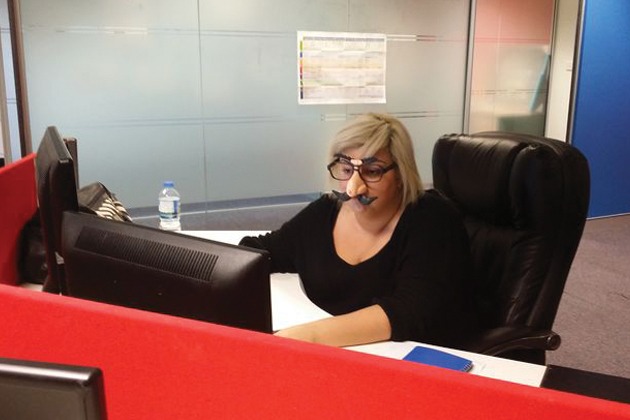Having fun at work helps us to renew and refresh ourselves in between negative or stressful situations. Choose to use good humor as a business skill and lead the way to laughter for everyone.
Today’s best leaders openly endorse humor as another business skill to be developed in the same way they improve their negotiation and organizational skills. It has been proven that humor improves morale, self esteem, and productivity in the workplace. Only a few dinosaur thinkers still believe the earth is flat or dispute the positive effects of humor in workplace.
The use of humor as a business skill isn’t about telling jokes or acting like a comedian. And let’s face it; some things will never be funny. When I talk about having fun in my seminars, I mean that real fun at work happens when people are really good at their jobs and when they accomplish something few others can. Now, that’s fun.
3 ways to use humor as a business skill at work:
1. Encourage employees to be the absolute best they can be. In my experience, this is the number one stress reliever. Being extremely good at one’s job naturally reduces anxiety because it increases confidence. That means making sincere attempts to obtain the tools needed for your employees to be their best.
2. Recognize and celebrate humor when it happens, being sure to enhance and never diminish a person’s value while doing so. After all, everyone smiles and laughs in the same language. As an example, at the hotel I stayed in on a trip to Florida, I woke up just before midnight because my room suddenly got uncomfortably hot–no air conditioning. So I called the front desk and an “excited” voice answered. Before I could say a word, I was told, “Sir, a transformer just blew up outside the hotel. The power is off. All we have is the back-up generator.” Before I could stop myself, I asked, “Oh, no! Was it the Decepticons at work (referring to the 2011 blockbuster movie, Transformers)? Which transformer blew up? Not Bumblebee. He’s my favorite!” The clerk answered, “No, not ‘transformers plural’-just one.” I amped it up and said in a warning tone, “But it only takes one. Megatron didn’t attack us, did he? Have you called Optimus Prime?” He paused in puzzlement and then replied, “No, I didn’t call Optimus Prime, Sir.” Now highly animated, I commanded, “What are you waiting for? We need help!” Before long, word about this conversation got around to the manager who (I learned when I checked out) had comped my room. He wanted to thank me for helping his employees make it through the ominous “transformer” crisis with smiles and laughter.
3. Establish your own good humor ritual to close out your day. At the end of every day, it’s important to leave work and not drag the day’s entire stress home with you. I call it using your Comic Vision. For example, before leaving for the day, you could throw your arms in the air and do your best impression of a gymnastic “dismount.” Then as you walk out of your cube or office, point at your desk and shout “STAY.” That lets you mentally leave your work at work. Oh, don’t worry. It will all be there for you the next day to again do that “voodoo” you do so well. Applying these ideas will add levity to your leadership and help your employees use Comic Vision to shift their perceptions. Why is that important? You’ll create a positive work experience, plus you’ll allow people to get refreshed between the stressful situations that inevitably occur.
Have a wonderful day and remember, laughter becomes you.
-Tim Gard, CSP, CPAE



